

Pages in this Folder:

Related Folders:
See also Department Site Map
Support Provided by

Toronto Parks and Trees Foundation

This website has received support from celos.ca through the Trillium foundation.
Publications
Comments?
For the basics, see
- Website & Privacy Policies
- How To Get Involved
- The Role of the Park
Search options:
Department Site Map
Custodians:
Ladan Behbin and Blake Howard: Fresh Fields
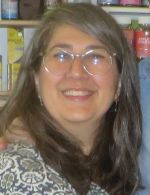
Ladan Behbin: interview, Sept.30, 2022, at the Brazil bakery café.
Jutta: Were you born here?
Ladan: no, I was born in Iran. We left there when I was eight, when the revolution started, and we moved to France. That was January 1979. My father has always been interested in politics, so he saw that there was danger brewing and we left. We left the same day the Shah did – it was the last flight out. So we lived in France for nine months, and then my dad went back to Iran to try and get our house sold and to sell all our stuff, because he started to feel like it wasn’t going to change, and we couldn’t go back. And because I’d gone to an English-speaking school in Iran, we went to London. We lived there for six years.
When I turned sixteen, the British government said, you are now old enough to live here by yourself. So they didn’t renew my parents’ visa, they only renewed mine. They said, “she can live here and go to a boarding school but you guys have to leave.”
We had three possible places to go – Canada was an option, Switzerland was an option, and so were the States. But my dad didn’t want to move to the States. And for Switzerland, you had to show that you had a certain amount of money, and we didn’t have that kind of money. So Canada was the one that had open arms. On July 31 in 1985 we left to come here.
They were very welcoming at that time, they were looking for immigrants. It seemed like there was no issue at all about us coming. Now it’s a different thing.
My dad had gone to university in the States, in the 1950’s. He went to Indiana, for economics. So he was already English-speaking. My mom wasn’t as confident. My grandmother came and lived with us. She only spoke Farsi, so I kept my Farsi up for her. My father ended up working all sorts of jobs. He’d apply for jobs and they’d say, well, you’re overqualified. He worked at the post office for a while, sorting mail. Then he was a security guard. Then at the end he did some work translating for immigration lawyers, in court. At that time my parents got divorced. I was eighteen and I moved out. Now my mother lives on the first floor of our house, we live on the top two floors.
I didn’t do very well in high school after I got here. I’d had so much culture shock by that time. Each time we moved everything changed. I used to be very studious but then I was, like, I’m done with schooling. But I used to go to classes for certain specific things, like I did graphic design at George Brown and then did a year of art school at OCA, that was before it became a university. And I worked at a bar, the Midtown, at Euclid and College. It had three pool tables in the back. It was run by a U of T prof and his partner, who was one of his ex-students. That was when I met Blake. I still have a lot of friends from that time, there was a lot going on. And then I went to Image Works and did a web design course. I worked in web design for a while, got a few contracts. That was before children.
When I worked at that bar, I worked with a woman named Shannon. She was an actress. I approached her to ask if we could open a bulk food store on College street as we both were feeling done with the restaurant industry. I was at Ryerson at the time, taking a Still Photography course. After researching and finding suppliers, a space and so on, I decided to finish my photo course and to pursue web design after. She decided to continue alone and I worked for her sometimes as she couldn’t afford a staff and it was a slow start. I supported local and shopped there at the college street location! When her lease expired, I alerted her to the fact that a business on Roncesvalles was closing and she took over their spot. She has been there since. I worked for her for the year before Fresh Fields.
Our kids were at Shirley Street School at the time, and two of the moms whose kids were also there had this store at Dundas and Sheridan. They let people know they were looking for somebody to buy it. So I talked to my mother and my dad. My mom wanted me to have some stability. She felt like everything I did before wasn’t really stable. So she and my dad helped me with the financing. We were well below the poverty line.
So I thought, well, we can do this, it’s an exciting sort of thing. I was going to do it alone and then Blake was doing drum classes at night, and then he started to help me more and more during the day and then it just became a mom-and-pop store.
It didn’t take me a long time to figure out how I wanted it to be, it just came together sort of organically. There was always produce at this store before we bought it, but it was not always in good shape and so nobody bought the produce. So we started to order more produce and made it more abundant and fresh. We started right away buying produce from the farmers at St.Lawrence Market.
Jutta: But you also have a lot of other things, from all over the place. The food is global, and the music is global.
Ladan: I get a charge out of doing it. It has its downsides for sure. But the customers are the good part. The community is really nice, and we’re seeing the same people over and over. From the beginning, we just brought all our cd’s in and we play all the music that we would be listening to at home. But we would never listen to that much music at home, so it’s great.
Jutta: it’s amazing how many things you have in your store. How do you fit it all in? And the window, it has so many interesting things in it.
Ladan: I just make it work somehow. We had a customer who was also a woodworker, and we had a lot of bits and pieces of plywood in the basement. I said, could you make some shelves for the window so I could put even more stuff in the window? And he did. It’s easy around here, in this neighbourhood, to find someone if you need something done.
During the lockdowns we had a lot of people phoning for deliveries from us. Carlie, who’s also a musician, and lived across the street from us, started working for us. People would tell her what they wanted and she would pick it up and would deliver it to them. So that worked out really well. People kept asking, well, don’t you have a website where we could see everything that you have? But we didn’t really want to put a lot of work into that, and didn’t have the time.
During the pandemic time we did better than before. People did a lot of cooking because they couldn’t go out to restaurants. People started making their own bread, that was a big thing. We sold so much flour! It was incredible how many people were doing sourdough. There was not much else to do other than stay home and cook.
But a lot people also came and shopped in person. We were a little spot where people could come and tell us their true feelings about the pandemic. And for us, too, if we had a day where almost everybody who came in was very anxious about the pandemic and maybe nasty, accusatory of us not being the same as they were -- at the beginning, before the mandate: "why aren’t you wearing a mask?" – then if we had a few people coming in that were like-minded, it was like a balm. People that we might have only been on a hi-bye basis with came more to the fore. It was an eye-opener in a certain way. Sometimes it was super surprising. Sometimes it was old friends that you couldn’t see eye to eye with anymore, and they probably were feeling the same.
After the rules were removed our business slowed down, because our customers all went away as much as they could, on big trips, as soon as they were allowed. But now people are coming back again.
Inflation is a little worrisome. There are marked differences. Something that I ordered last month and then I ordered the exact same thing this month and it’s maybe 25% more. Like a jar of mayonnaise. How would a regular sort of person who wants to buy good food manage that?
Jutta: do people ask you for advice a lot? I do. I think people trust you.
Ladan: Yes, and sometimes I don’t know why. Like, this woman came in yesterday, who shops at the store all the time, and she said, you’re like my doctor. And I said, I’m not a doctor, I’m not trying to cure whatever it is you’ve got.
Jutta: but don’t people ask you things like what kind of ketchup is the best? That’s not what you can ask a doctor even if you’d like to. Maybe you’re like the people’s grocery doctor.
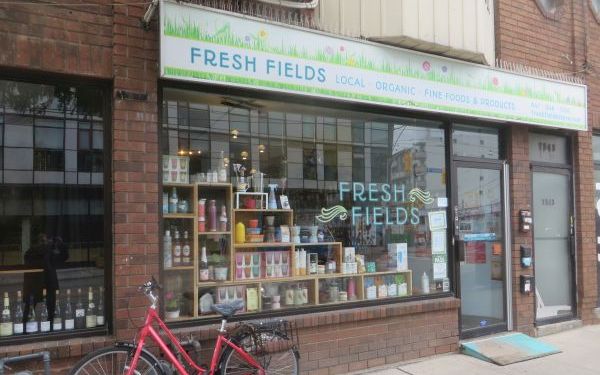
|
Blake Howard. Interview around the corner from Fresh Fields, on a public bench in the sun.
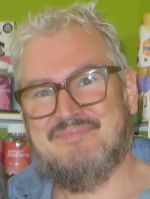
Jutta: Were you born here?
Blake: I was born in San Diego. We lived in Connecticut for a while. We were moving a lot. My dad was an aerospace engineer. I am legally a citizen of the U.S.A. I’ve never taken the oath to the queen. My parents for some reason didn’t sign me up. I’m number three of four brothers so I kind of fell between the cracks. We moved to Canada, lived in Grand Bend on Lake Huron for a while. The company my dad worked for there made Hovercrafts. I can remember my brothers and I used to play inside abandoned Hovercrafts, that were in a field behind the company. That was cool, early on. Then we moved north of Toronto to Tottenham. My dad worked at Spar Aerospace.
[A person stops to say hello and then goes on up the street.]
Blake: That’s Carol. She and I share a wonder at the majesty of God. I think she’s from Jamaica. Whenever she says “my God” I take her to mean, “the wonder you can not describe.” We got to know each other just out on the street, putting out cardboard on recycling day, around the time when everyone had to be freaked out with one another, and we decided we don’t want to be freaked out by one another, we want to talk and embrace each other, and wonder at the glory of the being that created us. There was just sort of an instant recognition.
Around here there are a lot of people who are familiar. I moved to the city in 1991. I met Ladan in 96 and I’d be playing for five years around town. No great success – or whatever you call that. But with a little bit of interest in what was happening around town.
Jutta: Did you have your own band?
Blake: Yes. I still play with them, it’s been 31 years. We played last weekend at the Geary festival. The band is called Guh. Like the sound of a baby being born, or maybe it’s a guitar sound, guh guh guh guh. Originally there were four, then there were five, then there were six, and then it grew from there. There have been fourteen or eighteen at one time, and then it came back down to three. We just keep shifting around, but usually seven or eight people. Usually it’s two drummers, sometime three. I play a drum kit but also sometimes percussion, shakers, anything you can make sound with.
I forgot about every kind of a post-secondary education. I just fell in with some people who were going to U of T, and then I started doing things that they were doing – if they were writing music, they’d say, okay now you write some music, explore different things. My friend would say, come and play in the U of T gamelan ensemble – Balinese gamelan. And we were recording things at the U of T studio. I was around there a lot, but as a visitor, not an enrolled student. Then I studied one-on-one with a drum teacher, who was known as a master teacher.
Myself and Ladan – she was working at a bar up on College Street at the Midtown, I was working at La Hacienda down on Queen as a dishwasher and waiter and also playing music at different places – so there are a lot of familiar faces everywhere. We met through a guitar player that I played with who also worked at the Midtown…. Then we took a road trip, all three of us together, to visit my brother who lived in Ohio at the time. And then we drove over to Brooklyn to visit Ladan’s sister. And it ended up I couldn’t stop seeing her, or thinking about her, or however it happens – you’re just immersed -- you have a trepidation about even telephoning, why would that person even want to talk to you? But we’re together.
Jutta: Did you have any background in running a store?
Blake: No. It's been seven years since we got the store – 2015, August 11, the fateful day. Ladan had worked at the Mercantile, originally on College Street, which she helped to open. I grew up on a farm from the time I was 5 until I moved out of the house at 19. It was a farm for horses and cows and chickens and ducks -- a hobby farm. My mom can’t live without that kind of stuff. She comes from a farm like that in England.
My parents were so opposite. My dad was in Aerospace, the science, whatever, and my mom was a Montessori school teacher. When she retired, that coincided with locking everybody down. She got very depressed, because she was used to all the energy of all those children and now all of a sudden she wasn’t even allowed to see her own grandchildren.
The Queen said in 2020 that it was all right. She said we just need to be patient. I agree, I know that it is the most right time to be patient and to have contentment and surrender to what comes and praise the One. But I felt like there was something in this that was wrong. Maybe I have been paranoid, thinking that someone was trying to force a system upon us – people have been made fun of, if they say that. But I was wary of the mandatoryness. People have been outspoken against the morality police in Iran, but not the morality police in Canada during the last two years.
And that idea led to a little bit of trouble in our space at Fresh Fields. We thought that there was something being responded to in an oversimplified way, that was not going to get you to where you want to go. And it obviously didn’t really have an effect on illness in the way that we were being told – “if we just do this, if we just do this…” People were still getting sick and are continuing to get sick and have been sick before.
During the last few years we wanted the store to be a tranquil spot for everybody. We had to wear masks in order to make everybody feel all right, but sometimes I was just wearing a face shield, and that made people feel uncomfortable. There were google reviews letting us know that we didn’t care about community, and that we didn’t care about health, and that we didn’t care about anybody – except ourselves – and not even about ourselves, obviously.
You know, with no hesitation we stayed open. We didn’t think our customers were dangerous to us or each other. We understand the nature of disease and we are certainly respectful. But seeing people enforce things on one another, that was the most disheartening. We’re not enforcing anything on you but you’re coming down on us because of the way we are. That was a time of opposite – opposition – opposite. But that is the way of the world. Every pathway we’re on, we have to be aware – always the end result can be anger – anger – anger. We’re mad at each other and at God. “It’s a great day to yell at God.”
Jutta: But the fact is that you survived this and you became known as a place that was non-judgmental.
Blake: I hoped that’s a little bit what happened. Judge yourself, because you can never know another.


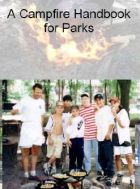
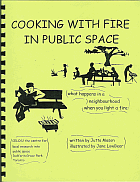
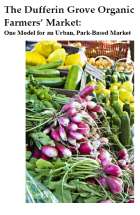

 Printer friendly version
Printer friendly version